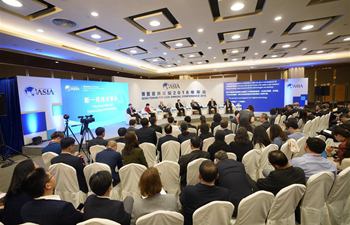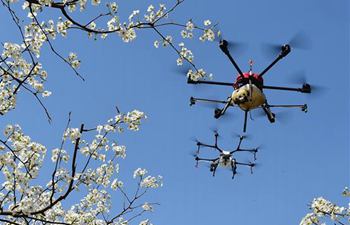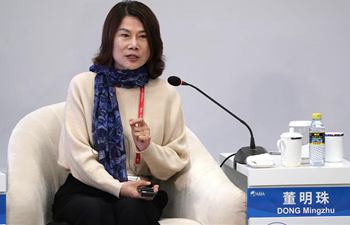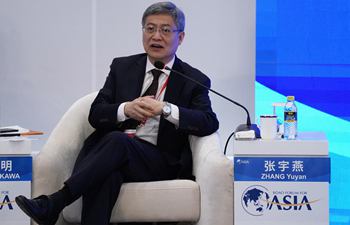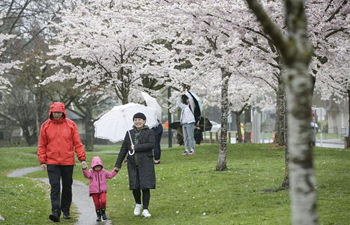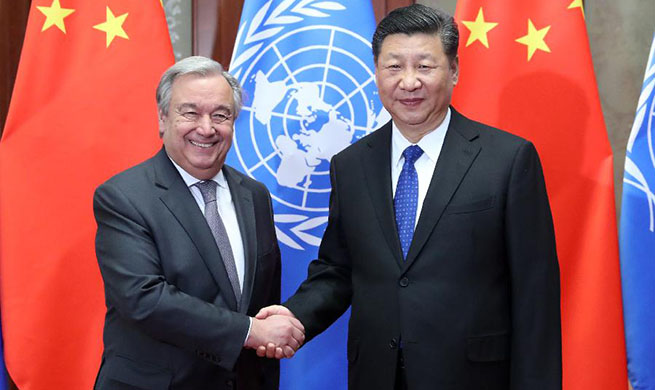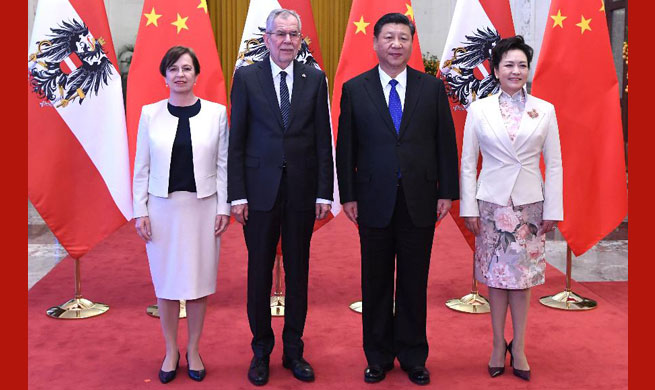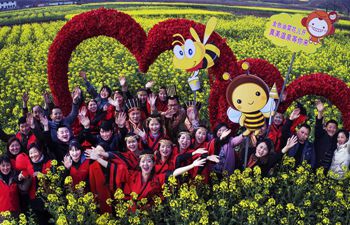NAIROBI, April 9 (Xinhua) -- The China-Kenya partnership in culture and transfer of agricultural technologies is bearing positive results that include enhanced friendship and food security, directors of the Confucius Institute at Egerton University told Xinhua during a recent interview.
Joshua Ogweno, the Kenyan director of the Confucius Institute, said blending of Chinese language, culture and arts curriculum with transfer of expertise in modern farming has benefitted research institutions and local communities.
"There is huge enthusiasm among Kenyan students to learn Chinese as a foreign language. On agricultural technologies transfer, we are doing better and have trained over 300 farmers who appreciated it due to increased production," said Ogweno.
The Confucius Institute at Egerton University, which has a long-standing partnership with Nanjing Agricultural University, was established in 2012 with the aim of becoming a center of excellence in teaching of mandarin and knowledge transfer in food production.
Currently, the institute has enrolled more than 2,000 students who study Chinese language at the certificate level and plans are afoot to upgrade the course to post graduate levels upon recruitment of additional teaching staff.
Ogweno said the Confucius Institute at one of Kenya's oldest Universities located in Nakuru County has extended Chinese language training curriculum to primary and high school students.
"We have several teaching centers tailor made for young learners in primary and secondary schools. Our students participate in bridge competition and cultural exchange programs," said Ogweno.
He revealed that 15 to 20 students from the Institute are dispatched to China annually to experience the country's rich culture.
Ogweno hailed the agricultural exchange program that has revolutionized food production in the country through adoption of modern technologies.
He singled out greenhouse farming, collaborative research on drought resistant crops and irrigation technologies for their potential to end perennial hunger and malnutrition in Kenya.
Ogweno said the Confucius Institute at Egerton University aims to become a regional center of excellence on transfer and adoption of Chinese agricultural technologies.
Egerton is among Kenya's four major public universities whose fully-fledged Confucius Institutes have elevated the teaching of Chinese language, arts and culture to new levels.
Li Yuan, the Chinese director of the Confucius Institute, said it has been at the forefront in cementing China-Kenya cultural and agricultural cooperation to achieve mutual benefits.
"The Confucius Institute not only emphasizes the spread of Chinese culture, but keeps its own agriculture characteristics," said Li, adding that high-level events held at the institute have exposed Chinese culture to Kenyans.
According to Li, the Confucius Institute last year held and participated in 36 cultural events that included the Spring Festival Gala and agricultural civilization summer camp.
"A series of Chinese corners focusing on traditional Chinese clothes, tea culture, paper cutting and Peking Opera have been held," said Li.
The Confucius Institute has already signed a pact with Nanjing Agricultural University to promote vocational training in modern farming methods.
Li said the partnership will enhance skills upgrade among agriculture professionals in Kenya and Sub-Saharan African region.
He noted that skills development, knowledge sharing, research and innovations will revolutionize farming and rural development in the region.




